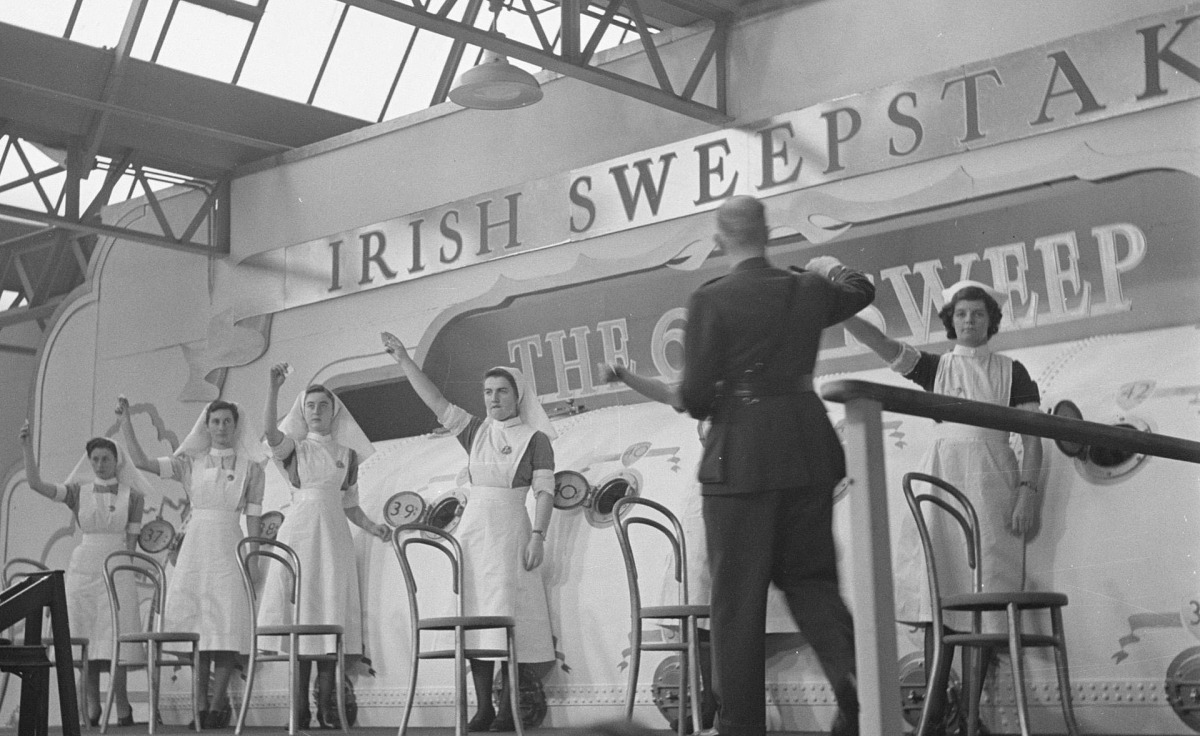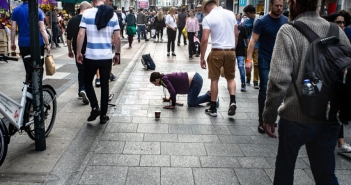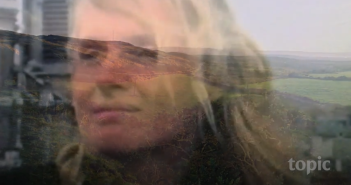Joe MacAnthony might be considered the greatest investigative reporter to have ever operated in the history of the Irish State. His career in Ireland, however, was cut short by vested interests that still appear to insulate those with money in power from accountability and criminal sanction.
Having exposed the staggering corruption lying behind the Irish Hospitals’ Sweepstakes, he eventually ran out of Irish publishers, and was forced to take a job with the Canadian Broadcasting Authority. After receiving threats to his life, he moved to Canada with his wife and four children, where he lived for thirty-five years.
0:00 Introduction
1:13 The Irish Sweepstakes
14:42 Story on Ray Burke
19:30 Closed down in RTE
24:00 Move to Canada
29:00 Death Threats
31:00 Unable to Work in Ireland
32:58 Views on the Irish Times
34:10 ‘We have sick journalism in Ireland’
38:00 Possibility of Solution
As testament to MacAnthony’s stature in Irish journalism, on November 15 2020 Liam Collins wrote for the Sunday Independent:
The first Irish Hospitals’ Sweepstakes draw took place 90 years ago this month and it quickly became a global phenomenon. Behind the razzmatazz and the instant riches, however, was a hidden tale of greed. More than four decades later, investigative journalist Joe MacAnthony broke the biggest story in the history of the Sunday Independent and revealed where the Sweep millions went.
The state-sponsored lottery was set up under the first Cumann na nGaedhal (later Fine Gael) government of the State in 1930, and would bring unheard of riches to former Minister for Industry and Commerce Josephy McGrath, and his heirs, who became firm fixtures in the commercial life of the country, with many influential friends. MacAnthony estimates their fortune amounted to up to four hundred million dollars by 1972.
Last week filmmaker and Cassandra Voices contributor Bob Quinn sent us a recording of a film he made in 2006 entitled ‘They’ll Never Show That.’
MacAnthony reflects on his career, and the sorry state of Irish media as he saw it; the structure of which remains substantially unaltered today; in an era increasingly hostile to investigative reporting.
Having blazed a trail with his work on the Irish Hospitals’ Sweepstakes, MacAnthony explains how his revelations into the corrupt affairs of former Fianna Fáil Minister Ray Burke as far back as the 1970s, hastened the end of his career in both the Sunday Independent and RTE, who withdrew his security card for a period of six months, while he continued to draw a salary.
MacAnthony provides a chilling assessment of Irish media:
the Irish Times, when you look at the manner in which this whole thing seems to be fitted to whoever can make the most money in the upper circles of that paper … that is a total disgrace, an unconscionable disgrace in terms of Irish press freedom … the result is we have sick journalists in Ireland and it is sick journalism, and it’s not due to the people who want to be good journalists. It’s the people who control what the good or bad journalists say and who encourage triviality … I mean, the level of triviality that you read. It’s unbelievable.
He argues that corruption has come about through what he calls ‘facilitators’ – accountants and lawyers – who ensure that few, if any, politicians are ever held to account.
Ray Burke would serve just four and-a-half months of a six month sentence behind bars, while Liam Lawlor served a few weeks for contempt.
MacAnthony traces the lenient treatment of politicians to a class distinction, between those who get ‘six years and who gets probation,’ while ‘basically no lawyer in this country and no accountant ever imagines he’s going to go to jail for playing ducks and drakes.’
He asserts
it’s just embedded. A culture is embedded … that you can get away with murder.
MacAnthony proposed the solution of a ‘counter power,’ similar to the FBI, which could set up ‘stings on politicians.’
He concludes:
Nobody goes to jail … I mean, these exile millionaires like Denis O’Brien, I mean, that’s disgusting … here is a guy who makes … money out of Irish assets and then goes off and lives somewhere else and only comes in here … when he has the prospect of taking more money out of the system.
He warns:
You know, every time you take money out of the system somebody pays and they’re paying [with their]health or they pay in other areas, but they always pay. So these people, I mean, there is conscience involved here. You know that when you make a lot of money, somebody’s suffering at the other end of the scale.




